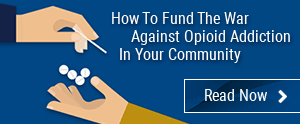Millions of people in Ohio and around the country who have taken the antacid Zantac and its generic equivalents will likely be alarmed to learn that the medications have been linked to a known carcinogen. The sequence of events that eventually led to the drugs being pulled off pharmacy shelves began when a laboratory in Connecticut placed Zantac in fluids similar to those found in the human stomach and discovered levels of N-Nitrosodimethylamine that were up to 3,100 times higher than the Food and Drug Administration’s recommended daily threshold. NDMA is known to be highly carcinogenic.
Voluntary recall
After conducting its own tests, the FDA issued a voluntary recall for Zantac, ranitidine and nizatidine. The agency asked pharmaceutical companies to test their drugs and advised consumers to find alternatives to the popular heartburn medications like Tagamet and Pepcid. Several other countries went further and banned the drugs outright.
Full recall
On April 1, 2020, the FDA announced a full recall of all ranitidine drugs. The agency says that it decided to take more rigorous action after further tests revealed that NDMA levels increase over time and surge when foods rich in nitrates, such as hot dogs and cured meat, are consumed. The results of these tests worry experts because Zantac was introduced almost 30 years ago and about 15 million prescriptions for the drug were written each year.
Holding pharmaceutical companies accountable
Individuals who develop cancer after taking drugs that were considered safe at the time but were later discovered to be potentially harmful may pursue civil remedies by filing lawsuits against drug manufacturers. Attorneys with experience in this area could explain how legal options may have changed in light of the 2020 Zantac recall, and they could also provide advice regarding the merits and drawbacks of joining a class action.


